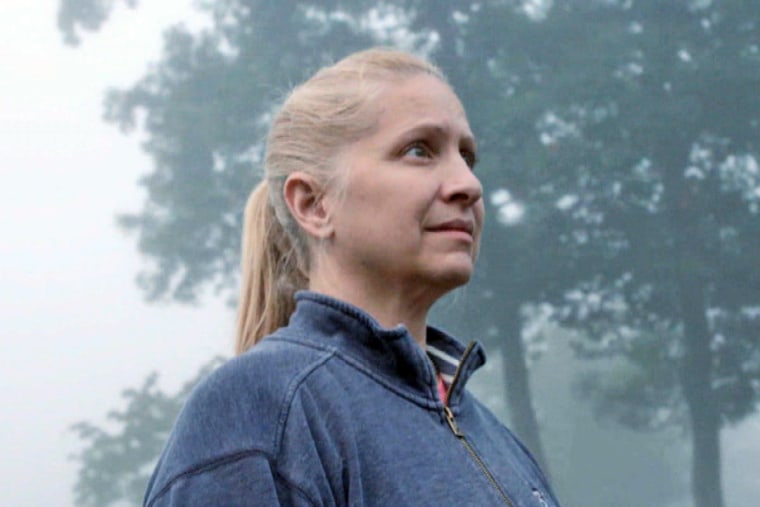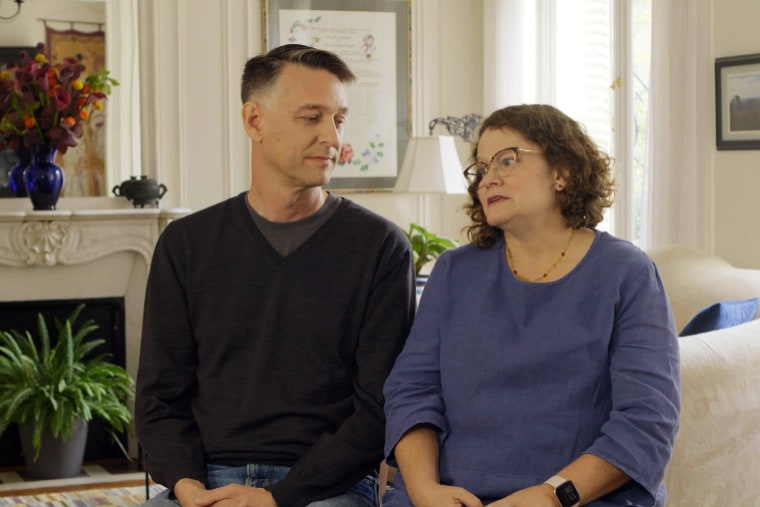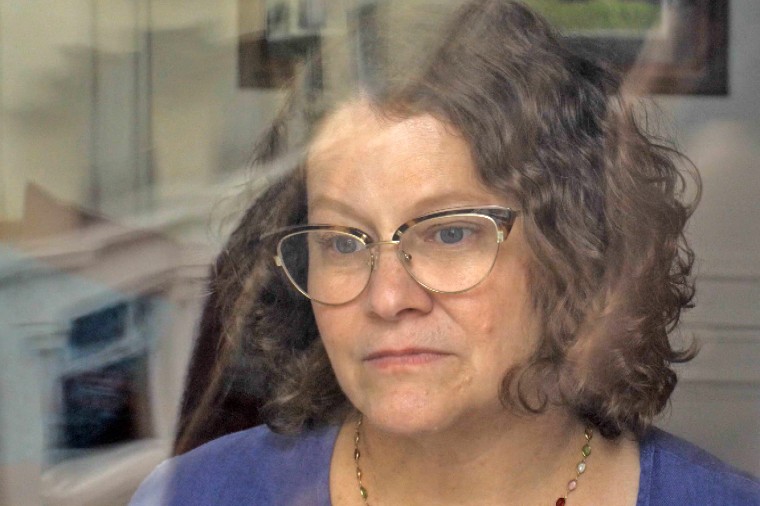In March 2017, Tina Onufer, a career foreign service officer stationed in Havana, was standing at her kitchen window, washing dishes, when it hit her.
“I felt like I was being struck with something,” she said. “Pain that I have never felt before in my life … mostly in my head and in my eyes. … It was as if I had been seized by some invisible hand and I couldn't move.”
Onufer didn’t know it then, but she was among the first victims of a still-unexplained phenomenon that has come to be known as Havana Syndrome — a mysterious set of symptoms, some of which are linked to brain injuries, that by now have afflicted as many as 200 American diplomats, intelligence officers and other personnel around the world.

Onufer and two of her former colleagues in Havana, a married couple named Kate Husband and Doug Ferguson, spoke to NBC News about their experiences after getting permission from the State Department. They want the world to know that what happened to them in Havana caused real suffering and documentable injuries, and that those who insist this must be a case of mass psychosis are wrong.
“The way the doctor boiled it down for me … he said, ‘Well, it's like you aged, you know, 20, 25 years all at once,’” said Husband, who was diagnosed with "acquired brain injury related to a directional phenomenon exposure.”

NBC News first reported in 2018 that American intelligence officials suspected Russia was behind the phenomenon, which some believed were intentional attacks using microwave energy.
Three years later, intelligence agencies have been unable to prove that, despite a report by the National Academies of Sciences, Engineering, and Medicine arguing that directed microwave energy is the most plausible explanation, and noting that Russia has studied the technology more closely than any other nation.
During the Trump administration, top officials, including CIA Director Gina Haspel, did not treat Havana Syndrome as a high priority, and some officials in the CIA were openly skeptical, current and former intelligence officials say. For the past eight months, under President Joe Biden, Secretary of State Antony Blinken and CIA Director William Burns, the federal government has stepped up its efforts to investigate the cause while smoothing the way for the afflicted to get treatment. This month, Biden signed the Havana Act, which improves their access to medical care.
A number of patients have been treated at Walter Reed National Military Medical Center alongside soldiers who suffered brain injuries from bombs in combat. Often, the symptoms are similar.
“People don't understand what this kind of brain damage can do to you,” Onufer said. “So it's very easy for people to be dismissive and say, 'But you look fine.' But the reality is, I'm not. And I don't think very many of us are. And we just want to have our lives back.”
Intelligence officials say they have not gathered enough information to say with any confidence what is causing the injuries or who is to blame. But they say Russia remains a leading suspect. And multiple sources familiar with the matter said that intelligence agencies are increasingly focusing on a theory that the injuries have been caused by some sort of directed energy, based on their own analysis of the evidence.
Officials say they are now completely discounting a 2018 State Department report by the JASON advisory group, an elite scientific board, suggesting that some of the original cases were caused by sounds made by a loud species of crickets.
Some officials believe that if directed energy is the culprit, it may have begun as a method of collecting intelligence that has now been weaponized, multiple sources told NBC News.
CIA officers and State Department employees deployed overseas are now given the option of baseline blood testing, so that if they are struck by the syndrome doctors can have a basis of comparison.
U.S. officials say once the government began urging employees to report any possible symptoms, the number of reported cases increased significantly. But they caution that not everyone who has come forward falls under the Havana Syndrome cohort.
David Relman, a professor of medicine, infectious diseases, microbiology and immunology at Stanford, led the National Academies study, which found that “directed, pulsed radio frequency energy appears to be the most plausible mechanism in explaining these cases.”
He said he does not see any possible natural phenomenon at work.
“I don't know why this happened to these individuals, but I do think it was deliberate,” he said.
“There's a lot of literature, some of it in Russian, that indicates that pulsed microwave energy can cause some of these symptoms and signs and brain injury. There are many international actors who would have the means of deploying a technology like this in today’s world.”
One of the confounding elements of Havana Syndrome is that many apparent victims experienced it differently.
State Department employees Kate Husband and Doug Ferguson, for example, did not feel a dramatic blast wave. For them, it was more subtle.
“What we experienced was something that was an annoying sound at our house many nights a week over the course of, of weeks,” Ferguson said.
“It was piercing,” Husband added. “It was persistent, like kind of at the same level all the time. Very loud … nothing you could sit with and be OK with.”

The couple was later examined by neurologists at the University of Pennsylvania. Ferguson was cleared to go back to work, but Husband was diagnosed with a brain injury and sent to treatment. She later retired on a medical disability.
She still suffers from balance issues that lead to nausea, and a fogginess that makes basic tasks difficult.
“The cognitive issues are multilayered,” she said. “Some of it is executive functioning. They said I had a real deficit. … Now I live with a notebook, a calendar that's open in the center of my space at all times.”
Husband and the others are speaking out to push back against the critics who believe their illnesses are the result of mass hysteria.
“I mean, I have verified physical injuries,” she said.
Onufer said that she is speaking out “to humanize this for America to, to help all of my fellow Americans, understand that as much skepticism as still seems to surround this, it's very real.”
This week, The Wall Street Journal reported that there have also been alleged cases in Bogota, Colombia.
Asked about Colombia on Tuesday, State Department spokesperson Ned Price said, “We are not in the business of confirming reports. But we are in the business of, No. 1, believing those who have reported these incidents, ensuring that they get the prompt care they need in whatever form that takes, whether that is at post, whether that is back here in the Washington, D.C., area. We are in the business of doing all we can to protect our workforce … around the world.”

